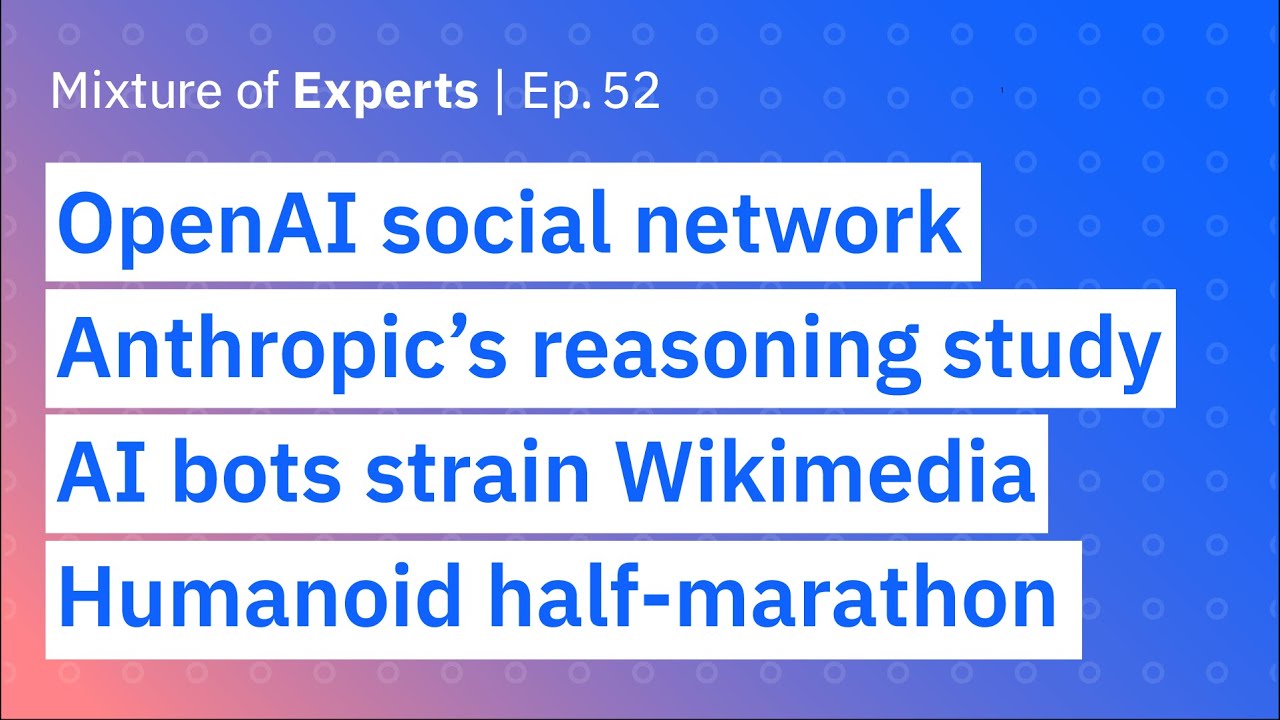In a recent podcast episode, the hosts discussed OpenAI’s rumored social network plans, expressing skepticism about its potential for data collection and the ethical implications involved. They also examined Anthropic’s reasoning study, debated the anthropomorphization of AI, and highlighted concerns about increased bot activity on Wikipedia, before concluding with a lighthearted discussion about a humanoid robot half-marathon in Beijing.
In a recent episode of the podcast “Mixture of Experts,” the hosts discussed several intriguing topics related to artificial intelligence, including OpenAI’s rumored plans to launch a social network. The panelists, including Kate Soule, Marina Danilevsky, and newcomer Gabe Goodhart, unanimously expressed skepticism about the idea, labeling it as “cringe.” They speculated that OpenAI’s motivation might be to gather more data for training their models, as the company has indicated a need for more conversational data. The discussion highlighted the potential risks and ethical considerations of creating a social platform primarily for data collection.
The conversation then shifted to a blog post from Anthropic that examined reasoning models and their ability to disclose the reasoning behind their decisions. The panelists debated the validity of the term “reasoning” in this context, with Marina arguing that the reasoning exhibited by models is often misleading and not reflective of true cognitive processes. Kate added that while chain-of-thought reasoning can help models generate more accurate answers, it does not equate to genuine explainability. The panelists agreed that the anthropomorphization of AI behavior can lead to misunderstandings about how these models operate.
Next, the discussion turned to the implications of increased bot activity on Wikipedia, which has seen a 50% rise in bandwidth consumption due to scraping bots used for training AI models. The panelists expressed concern about the sustainability of Wikipedia as a free knowledge resource, emphasizing the need for responsible engagement between AI companies and content providers. They suggested that major tech companies should collaborate with Wikipedia to create structured data sets that could alleviate the burden on the platform while still providing valuable training data for AI models.
The conversation also touched on the broader implications of AI companies’ data needs, with Marina noting that the current landscape may lead to a shift in how value is exchanged on the internet. The panelists discussed the potential for AI companies to invest in and support open data sources like Wikipedia, rather than simply scraping content without compensation. They emphasized the importance of maintaining the integrity of open knowledge while also addressing the demands of AI development.
Finally, the episode concluded with a lighthearted discussion about a recent humanoid robot half-marathon in Beijing, where robots competed alongside human runners. While the panelists acknowledged the novelty of such events, they remained skeptical about the practical applications of humanoid robots. Gabe expressed interest in the potential for robots to engage in various modalities beyond running, while Marina highlighted the value of basic scientific exploration in robotics. The episode wrapped up with a humorous suggestion for future competitions, such as robot laundry folding, showcasing the blend of serious discussion and playful speculation that characterized the episode.
